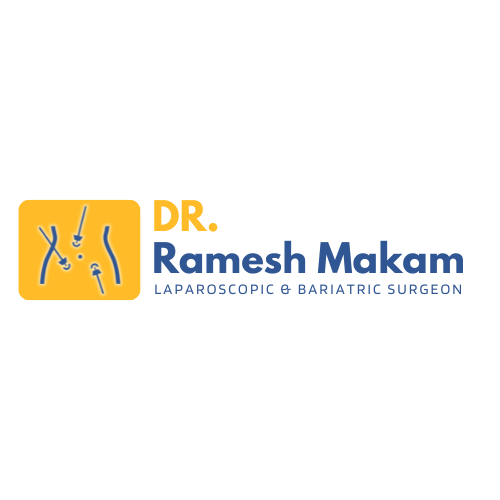GI Surgeries

GI Surgeries
Expert GI Surgeries for Enhanced Digestive Health - Dr. Ramesh Makam
Transforming Lives Through Minimally Invasive Surgical Excellence.
Introduction and Overview
Dr. Ramesh Makam is a highly experienced surgeon specializing in Gastrointestinal (GI) Surgeries, with over 35 years of expertise in performing complex procedures using minimally invasive techniques. His approach focuses on enhancing digestive health and quality of life by addressing a variety of GI conditions with precision and care. At Arka Anugraha Hospital, Dr. Makam leads a dedicated team using the latest technology to ensure the best outcomes for patients suffering from gastrointestinal disorders.
GI surgeries involve procedures on the digestive system, including the stomach, intestines, esophagus, and other related organs. These surgeries aim to treat conditions like gastric ulcers, inflammatory bowel disease, colorectal cancer, and more, often resulting in improved digestion, reduced symptoms, and better overall health.
Why Choose Dr. Ramesh Makam for GI Surgeries?
Dr. Makam is a pioneer in SILS, offering minimally invasive surgeries using a single incision for less scarring and faster recovery:
Extensive Experience
With over 35 years in GI surgery, Dr. Makam has performed thousands of procedures, making him a trusted expert in the field.
Pioneer in Minimally Invasive Techniques
Dr. Makam utilizes advanced laparoscopic and endoscopic procedures, ensuring minimal scarring, reduced pain, and faster recovery times.
Comprehensive Approach
Dr. Makam emphasizes a holistic approach to treatment, focusing not only on surgery but also on post-operative care, nutrition, and lifestyle changes to optimize long-term digestive health.
State-of-the-Art Technology
At Arka Anugraha Hospital, Dr. Makam’s team uses the latest surgical technology, providing patients with cutting-edge treatments for a range of GI conditions.
What is GI Surgery?
GI surgery focuses on treating conditions of the digestive tract, including the esophagus, stomach, intestines, liver, pancreas, gallbladder, and colon. These surgeries can range from minimally invasive laparoscopic procedures to more complex operations, depending on the patient’s needs.
Laparoscopic Cholecystectomy
Removal of the gallbladder using a minimally invasive technique, typically performed for gallstones or gallbladder inflammation.
Appendectomy
Surgical removal of the appendix to treat acute appendicitis, often performed laparoscopically for quicker recovery.
Colectomy
Removal of part or all of the colon to treat conditions like colorectal cancer or diverticulitis.
Hernia Repair
Repair of abdominal hernias through laparoscopic methods, reducing pain and promoting faster recovery.
Gastrectomy
Surgical removal of part of the stomach, typically for treating stomach cancer or severe ulcers.
Fundoplication
A procedure for treating GERD (Gastroesophageal Reflux Disease), where the top of the stomach is wrapped around the esophagus to prevent acid reflux.
Whipple Procedure
A complex surgery to treat conditions like pancreatic cancer, involving the removal of parts of the pancreas, stomach, and intestines.
Why is GI Surgery Required?
Treats Digestive Disorders
GI surgeries address conditions like ulcers, colorectal cancer, hernias, gallstones, Crohn’s disease, and diverticulitis, which may not respond to other treatments.
Long-Term Health Benefits
Correcting GI issues through surgery can lead to better nutrient absorption, improved energy levels, and reduced risk of future health problems.
Improves Quality of Life
These surgeries can significantly reduce pain, alleviate symptoms, and improve digestive function, enhancing patients' overall well-being. Prevents Complications: Early intervention through surgery can prevent serious
Prevents Complications
Early intervention through surgery can prevent serious complications, like the spread of cancer, bowel obstructions, or perforations.
Who are the Ideal Candidates for GI Surgery?

Chronic Digestive Conditions
Patients suffering from persistent digestive issues like ulcers, GERD, IBD, or chronic gallbladder pain that do not respond to medication.

Cancer Patients
Individuals diagnosed with stomach, colon, pancreatic, or esophageal cancer where surgical intervention is necessary.

Acute Conditions
Patients with emergency conditions like appendicitis or intestinal blockages requiring immediate surgical attention.

Overall Health
Candidates in generally good health who can tolerate anesthesia and recovery from surgery.

Advantages of Choosing Minimally Invasive GI Surgery
Smaller incisions result in less pain and a more comfortable recovery experience.
Laparoscopic procedures leave smaller, less noticeable scars, promoting better cosmetic outcomes.
Patients typically experience faster recovery times, allowing them to return to normal activities sooner.
Advanced laparoscopic techniques reduce the risk of infection, bleeding, and other common surgical complications.
Many procedures are performed on an outpatient basis or require only a short hospital stay.
Minimally invasive surgery provides enhanced visualization of the surgical area, leading to more precise and accurate procedures.
At Arka Anugraha Hospital, patients receive comprehensive post-surgery care, including dietary guidance, lifestyle changes, and integrative medicine for optimal recovery and long-term digestive health.
Want Learn More About Dr Ramesh Makam?

Meet Dr. Ramesh Makam
Patient Education Videos
Watch Dr Ramesh Makam informative videos to learn more about common surgical procedures and healthcare tips. Empower yourself with the knowledge to make informed decisions about your health.
